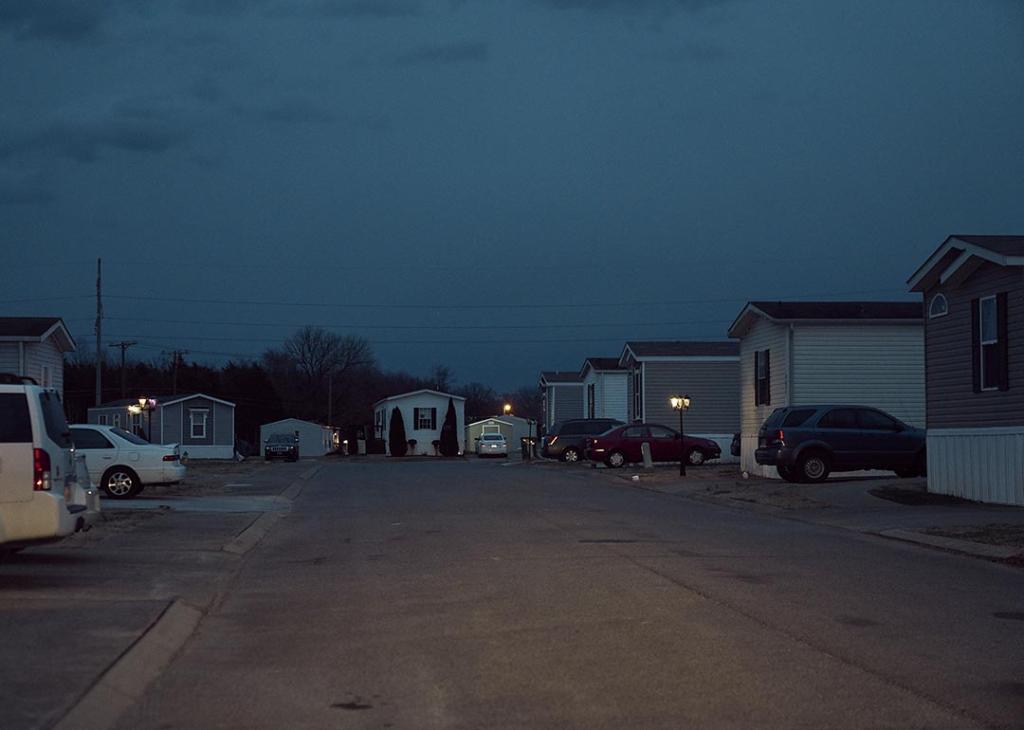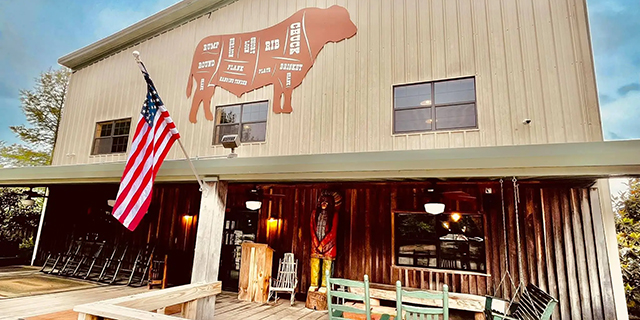Private equity is turning mobile homes into health hazards. What can governments do?
Published 2:00 pm Saturday, May 31, 2025

Private equity is turning mobile homes into health hazards. What can governments do?
Four years ago, Valeria Steele’s West Virginia mobile home park was purchased by Homes of America, a subsidiary of well-known “vulture fund” Alden Global Capital. The private equity giant has become infamous for buying distressed newspapers, cutting staff, offloading assets and loading them with debt.
“They don’t make any attempt to sell them,” Steele says. “They don’t make any attempt to repair them. And that’s the norm among a lot of their properties.”
Sure enough, after Homes of America’s purchase, lot rents jumped and tenants reported major problems like collapsing floors. The park has rapidly been emptying, maintenance has stalled, and rent checks have been lost. According to a new report, tenants in manufactured housing parks like Steele’s are also facing serious health hazards. Tenants have reported poor quality drinking water, frequent water shut offs, plumbing failures, and debris from vacant homes that were never emptied out.
The new research, published by Human Impact Partners and advocacy group Manufactured Housing Action (MHAction), is based on 20 interviews with Homes of America, tenants across five states and information from public records.
The private equity company owns about 144 manufactured housing communities across the United States, according to estimates by the Private Equity Stakeholder Project and Manufactured Housing Action. Homes of America did not respond to a request for comment.
Researcher Will Dominie tells Next City that partnerships between tenant organizers and government are vital to reigning in abuses of power by private equity firms in housing.
“These companies are so powerful. They have so much money. They have so many lobbyists. They have so many lawyers,” Dominie says. “It’s going to take the combined power of residents organizing [and government].”
Paul Terranova, an organizer with MHAction who collaborated on the report, tells Next City that tenants organizing against Homes of America have made “very important but still partial” victories over the company. Tenants near Flint, Michigan, have seen Homes of America plead guilty to criminal charges carrying a $25,000 fine and agree to sell their park. In Elkins, West Virginia, Steele and her fellow tenants are awaiting a settlement from their class action lawsuit against the company.
While tenants in manufactured housing face unique challenges, the report’s policy recommendations apply to the housing crisis at large. These recommendations include strengthening housing standards and tenant protections, supporting community ownership and limiting corporate speculation.
‘It’s degrading to live that way’
When Elena Smith signed her lease for a trailer in Lake Suzanne Mobile Home Park in Shiloh, Illinois, management told her the property had new owners and that changes would be made. Over the course of two years, she experienced conditions that lead her to two “mental breakdowns,” she says.
In a trailer with poor insulation, the air conditioning would go out in the height of summer or the heat in the dead of winter. When maintenance finally came to fix it, they found that the duct had been torn open by an animal burrowing inside. Management would shut off water in the park with no notice and give vague replies when asked when it would return. When the water did work, she still drank bottled water because the shower irritated her eczema.
“I used to think I had dandruff. I don’t have dandruff,” Smith says. “Because I moved somewhere else and my scalp is fine. It doesn’t flake anymore.”
In the report, researchers documented water quality violations at five Homes of America parks that included heavy metals, nitrates and fecal contaminants that could be linked to skin and gastrointestinal issues. Interview participants in four states reported sporadic water cut offs. All 20 residents interviewed bought bottled water for daily needs, spending up to $200 per month.
Smith says she and her sister paid out-of-pocket for ant traps, gallons of water for cooking and flushing the toilet, a window AC unit and motel stays when the conditions got too hard to manage. Finally, Smith’s sister took out a loan so they could afford to move.
While she lived at Lake Suzanne, Smith says she saw trailers disappear as city inspectors condemned them. The report cites inspection records listing 20 units “unfit for habitation.”
“I left a very dangerous situation and so to live like that … it was almost like ‘why did I leave if I’m going to live like this?’” Smith says.
The stress of her living situation drove Smith to contemplate suicide because it felt inescapable.
“It’s degrading to live that way,” Smith says. “It’s degrading to not be able to flush your toilet every time you use it and to let your mess sit in the toilet because you have to ration out the water to flush your toilet—to only be able to flush it once a day or not at all.”
Smith tells Next City that tenants in her old mobile home park still live the way she used to and don’t speak up because they’re afraid to lose their homes. While she no longer lives at Lake Suzanne, Smith stays connected to Terranova to help with the tenants’ fight and use her experience to bring attention to the situation.
How governments can protect mobile home tenants’ health
Terranova and Dominie say manufactured housing doesn’t have the same regulations as traditional rentals and tends to get less attention. These parks are often in rural places with few protections and house populations that are vulnerable to exploitation, such as low-income, elderly, disabled and immigrant tenants.
But there are a few states that have more robust legislation for how to regulate manufactured housing. Researchers frequently cited Colorado regulations—a state with no Homes of America parks—as policies that could be adopted in other jurisdictions or on a national level.
Colorado has a right to counsel for mobile home residents, protection from retaliation, tasks its state health department with testing and enforcing water quality standards at mobile home parks, and registers parks in a database.
A registry of mobile home parks may seem inconsequential, but researchers note that “enforcement depends on accurate ownership data, which can be difficult with corporations that often hide behind multiple shell LLC companies.”
After her park changed hands, Steele had to dig into public records and connect the dots between different Alden Global Capital affiliates to find out who owned it. Steele has also seen the importance of tenant protections from retaliation. After taking part in a class action lawsuit and informing her neighbors about unlawful eviction, Steele was sued by Homes of America and countersued for retaliation.
Colorado also has a way researchers say governments can limit corporate speculation on manufactured housing communities. Manufactured homes can be attractive investments to speculators who want to close them and repurpose the land for other uses—and local governments can prevent this. Boulder, Colorado, uses preservation zoning to make it harder to reclassify and convert park land to different uses.
As more and more of the trailers around her become vacant, Steele thinks Homes of America plans to empty out her park and redevelop the land. If the area becomes popular for different kinds of housing or vacation rentals, “they’d be on the forefront,” she says.
The report’s policy recommendations only highlight protections that exist in states where Homes of America does not operate and which can serve as posts for regulating manufactured housing.
“The most predatory companies tend to choose to operate in the states that have the least protections,” Terranova says.
This story was produced by Next City, a nonprofit newsroom covering solutions for equitable cities, and reviewed and distributed by Stacker.
![]()






